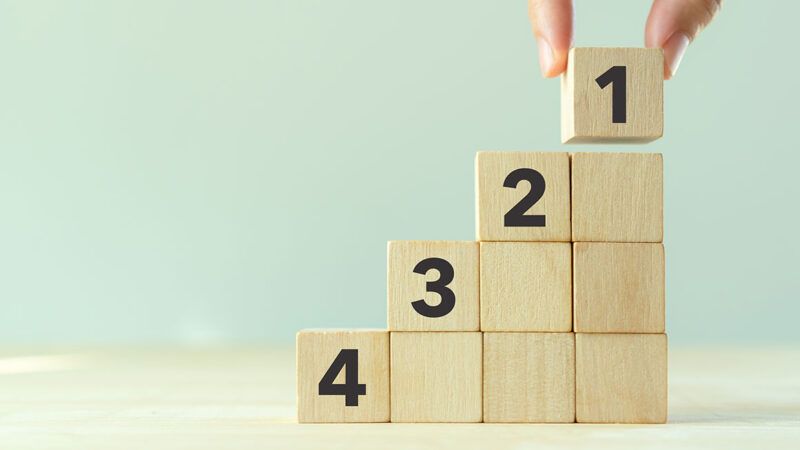Ranked Choice Voting Won at the Polls in 2022
On a ranked choice ballot, voters can rank every candidate in a given race. Over time, that could lead more voters to consider candidates outside the two parties.

Ranked choice voting is relatively new, and most voters likely don't know about it, but it is seeing a surge of attention after its role in the 2022 midterms.
On a ranked choice ballot, rather than choosing only one candidate from a list, voters rank each candidate on the ballot in order of preference, regardless of party. If one candidate gets a majority of first-choice votes, that candidate wins. If no candidate exceeds 50 percent on the first count, then the candidate who received the fewest first-choice votes is eliminated from contention, and all of the ballots with the eliminated candidate listed first are re-tallied, this time counting the second-choice candidate. This process repeats until one of the remaining candidates passes 50 percent.
Maine became the first state to use a ranked-choice system after its voters approved the switch in 2016. The system was deployed in the 2018 midterms, causing a House seat to flip from Republican to Democrat when the incumbent fell short of 50 percent in the first tally of ballots. The two independent candidates in the race received the fewest votes in the first two rounds of counting; when the ballots were retallied, most of their voters favored the Democrat. Under Maine's previous system, a plurality would have been enough to secure the Republican reelection but ranked choice allowed independent voters to weigh in while still voting third party.
Alaskans approved a similar measure in 2020. That state's switch attracted national attention when Mary Peltola defeated former Gov. Sarah Palin in an August 2022 special election to become only the third Democrat elected to the U.S. House in the state's history. Even though nearly 60 percent of voters chose a Republican first, those votes were split between Palin and Nick Begich III; when Begich was eliminated and his votes redistributed, only half of his voters picked Palin second, while 30 percent picked Peltola. Ergo, Peltola received Democratic and Republican votes and prevailed with over 51 percent of the final tally. (The general election saw a largely similar result, with the same three candidates, plus a Libertarian, in November.)
Critics, such as Palin, contend that ranked choice is too complicated and that its convoluted nature amounts to voter suppression. But 85 percent of Alaskans polled said they found it "simple."
Ranked choice could do more than just scramble two-party races. Historically, a major obstacle for third-party candidates is the idea that a vote for a long shot is a vote wasted. But on a ranked choice ballot, voters can rank every candidate in a given race. Over time, that could lead more voters to consider candidates outside the two parties.
Ranked choice also eliminates the need for runoff elections. More than 10 states conduct runoffs when no candidate achieves a majority. This requires a second election weeks later and generally results in lower voter turnout. Three Senate elections in Georgia went to runoffs from 2020 through 2022, and each saw 10 percent fewer votes—between 350,000 and 450,000—than the general elections that directly preceded them. If Georgia used a ranked choice system of voting, voters could have simply ranked all the candidates in November and avoided a second election altogether.
One downside is that the tally process takes time. In a traditional system, votes can be tallied as soon as the polls close, and mailed ballots can be counted even earlier. Ranked choice ballots can be retallied only after all the ballots have been received. For more remote areas, Alaska allowed more than two weeks to receive all ballots.
Both Republicans and Democrats are open to change. After the 2022 runoff, Georgia Secretary of State Brad Raffensperger told The New York Times that he would ask the state legislature to switch to ranked choice voting. Rob Sand, the Iowa state auditor and the only Democrat elected statewide there in 2022, says ranked choice would be great for the one-third of Iowans registered as independents who don't participate in party primaries. "The bottom line is we have a system that disenfranchises a third of Iowans," he told Radio Iowa.


Show Comments (173)